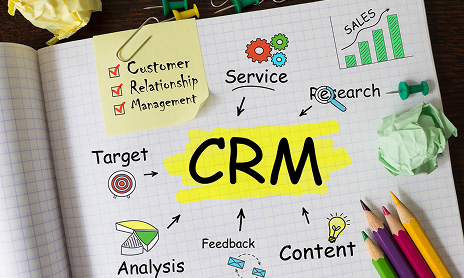
Event Management - Organize Events | Event Booking | Event Create | Buy Tickets Android & IOS application
Simplify event planning and management with an intuitive app for organizing, booking, and purchasing tickets. Designed for both Android and iOS, this solution streamlines event creation and enhances the attendee experience.
Event Management - Organize Events | Event Booking | Event Create | Buy Tickets Android & IOS application
Introduction:
Effective event management is essential for planning and carrying out successful events in today's fast-paced environment, from weddings and business conferences to concerts and community meetings. The entire process is streamlined with an all-inclusive event management app for iOS and Android that offers a centralized platform for simple event booking, scheduling, and administration. With the help of this flexible tool, users can manage registrations, create and modify events, and handle ticket sales all in one location.
With features designed with organizers and participants in mind, the app increases productivity and interaction. Creating event layouts, managing guest lists, setting up ticketing choices, and tracking event performance with real-time statistics are all simple tasks for organizers. A user-friendly design makes it easy for guests to browse events, buy tickets, get updates on events, and communicate with organizers.
The incorporation of these features into a mobile application enhances accessibility and efficiency of event management, enabling users to effectively manage every facet of their events. This program makes sure that all event-related chores are streamlined, whether for personal celebrations or business events. This makes the event planning process more efficient and easier for all parties involved.
1. Importance of Event Management System?
Defining its Importance
A key component of guaranteeing the effective planning and execution of events is an event management system. By centralizing every facet of event planning—from task management and scheduling to budgeting and logistics—it simplifies the entire process. This degree of organization helps ensure that no important details are missed, which improves the effectiveness of the planning stage. Furthermore, good communication is essential to event management, and an EMS makes it easier for team members, vendors, and attendees to connect with one another in a smooth and coordinated manner.
Simplifying the registration and ticketing procedure is one of the main benefits of an EMS. Real-time tracking of attendance and ticket sales helps organizers remain on top of the event's progress, while tools like online registration forms and secure payment channels make managing participant information easier. Furthermore, an EMS demonstrates proficiency in data management through the acquisition and preservation of important data, including financial records, attendance details, and comments. The success of the event may be assessed using this data, which can also be used to pinpoint areas that need work and inform future planning.
Even though the initial cost of an EMS may seem high, by lowering errors, eliminating manual work, and guaranteeing better resource allocation, it frequently results in significant cost savings over time. It is also important to note that an EMS can be scaled to accommodate events of all kinds and sizes, ranging from little business gatherings to big international conferences. Following the event, the system offers resources for getting input, producing reports, and assessing results, all of which provide insightful information for organizing events in the future. All things considered, an event management system is a need for effectively planning events, improving the experience of attendees, and accomplishing goals.
2. Key Features.
Event Creation and Management
Event Management and Creation: With the help of this tool, event planners may easily create and alter events. Users can control several components of the event, such as agendas, speaker profiles, and venue arrangements, in addition to setting up parameters like the date, time, location, and description. The application facilitates scheduling, layout planning, and task delegation, guaranteeing that every aspect of the event is arranged effectively.
Event Booking and Registration
simplifies the registration process, making it possible for guests to sign up and reserve their seats in a timely manner. This feature offers options for managing registrations, including answering RSVPs, offering several ticket options, and gathering data about attendees. It guarantees an easy and seamless registration process for participants as well as organizers.
Personalized User Experience
provides recommendations and material that are customized based on the tastes and actions of the user. Event planners can tailor the user experience to the preferences of their audience, and attendees are given choices for events that align with their interests. Users will have a more relevant and pleasurable experience because to this personalisation, which also increases engagement.
Event Promotion and Marketing
Includes features for advertising events via email campaigns, social media, and in-app notifications, among other methods. Organizers are able to efficiently contact prospective attendees, produce and distribute promotional materials, and monitor the success of their campaigns. This feature aids in drawing a wider audience and raising the visibility of the event.
Payment Processing
Manages financial transactions related to event bookings and ticket sales. The app supports secure payment gateways, allowing attendees to pay for tickets or other event-related services conveniently. It handles various payment methods, such as credit/debit cards and digital wallets, ensuring a smooth and secure checkout process.
Ticket Purchase and Management
Simplifies the process of purchasing and managing event tickets. Attendees can buy tickets directly through the app, view their purchase history, and access digital tickets. Organizers can track ticket sales, manage ticket types, and handle refunds or exchanges, ensuring efficient ticketing operations and enhancing the attendee experience
3. User Experience and Personalization
An event management app's user experience and personalisation are essential components that greatly improve both its functionality and user happiness. By prioritizing the user experience, the application guarantees a smooth and user-friendly interface for both event planners and participants. To make event preparation and participation simple, this entails creating a user-friendly navigation system, responsive layouts, and effective performance. A great user experience makes it easier for users to browse events, manage registrations, and access pertinent information by removing barriers and streamlining procedures. This increases user happiness and engagement levels.
By customizing the features and content of the app to each user's unique interests and behaviors, personalisation enhances the user experience even more. This entails providing guests with personalized event recommendations based on their browsing history, past interactions, and interests. Users are encouraged to explore and engage in activities that genuinely interest them by the app's personalized notifications and offers, which make the experience more relevant and engaging. Custom dashboards and management tools, along with access to particular insights and data tailored to their event requirements, are examples of how personalisation may benefit organizers. When combined, these customized features improve user satisfaction and event outcomes by strengthening user-event relationships and improving the overall user experience.
4. How is Implementing Event Management App beneficial?
Implementing an event management app offers substantial benefits by streamlining and enhancing the entire event planning and execution process. For organizers, the app provides a centralized platform to handle all aspects of event management, from creation and promotion to ticketing and post-event analysis. This integration reduces administrative burdens, eliminates the need for multiple disparate tools, and ensures that all event-related tasks are efficiently managed in one place.
A primary benefit is increased operational effectiveness. The app streamlines a number of tasks, including tickets and registration, which reduces errors and human interaction while also saving time. This automation makes it easier for organizers to handle high registration and transaction volumes, providing a smooth experience for both parties.
The software provides participants with an easy-to-use interface from their mobile devices to browse events, register, and buy tickets. Because customers can quickly and easily obtain event information, get timely updates, and communicate with organizers, this convenience increases consumer happiness and involvement.
In addition, the app's analytics and reporting tools offer insightful data on attendee behavior, preferences, and event outcomes. Using a data-driven approach helps organizers make well-informed decisions, maximize the success of upcoming events, and more precisely target marketing campaigns. Ultimately, using an event management app increases the success and impact of every event by improving not only the efficiency and effectiveness of event preparation but also the whole experience for attendees and organizers.
5. The Evolution of Event Management
The evolution of event management has been marked by significant advancements in technology and changes in consumer expectations. Initially, event planning relied heavily on manual processes, including paper-based registration, physical ticketing, and face-to-face coordination. Organizers often used spreadsheets and phone calls to manage guest lists, schedules, and logistics, which could be time-consuming and prone to errors.
The advent of digital tools and software transformed event management as technology advanced. Early event management software reduced the need for physical documents by providing digital registration, online ticketing, and basic event scheduling. It also improved planning efficiency. With the development of email and the internet, communication became even more efficient, enabling event planners to electronically send out reminders, updates, and invitations.
More advanced event management technologies with integrated payment processing, real-time analytics, and mobile access started to appear in the 2000s. With the help of these technologies, event planners were able to better manage the details and give guests a more smooth experience. Social media started to play a major part in facilitating audience participation, event advertising, and feedback gathering.
Overall, the evolution of event management reflects a broader trend towards digital transformation and enhanced efficiency, with each advancement bringing more powerful tools and capabilities to meet the growing demands of both organizers and participants.
6. Future Prospects of Event Management Apps
The future prospects of event management apps are incredibly promising, driven by rapid technological advancements and evolving user expectations. As digital transformation continues to shape various industries, event management apps are expected to become even more sophisticated and integrated, offering enhanced functionalities and seamless experiences for both organizers and attendees.
One significant trend is the integration of artificial intelligence (AI) and machine learning, which will enable more personalized and predictive event experiences. AI-driven features could include advanced recommendation engines for suggesting events to users based on their preferences and past behavior, as well as intelligent chatbots for real-time support and engagement. These technologies will help organizers deliver more tailored and efficient experiences, while also streamlining planning and management tasks.
The future of event management will continue to be shaped by the growth of virtual and hybrid events. Apps will need to interface with interactive technology, live streaming, and high-quality virtual event platforms in order to meet the growing demand for adaptable event formats. This will enable the organizers to offer immersive experiences, a wide range of involvement possibilities, and a worldwide audience.
Furthermore, developments in virtual reality and augmented reality will improve how immersive and engaging events may be. Beyond conventional forms, virtual event spaces, interactive booths, and captivating guest experiences can be produced with AR and VR technologies.
Overall, the future of event management apps will be characterized by greater personalization, advanced technology integration, and innovative event formats, positioning them as essential tools for creating successful and impactful events in an increasingly digital world.
















